Wild violets
gardenfanatic2003
15 years ago
Featured Answer
Sort by:Oldest
Comments (42)
bpgreen
15 years agoRelated Professionals
Forest Park Landscape Architects & Landscape Designers · Kyle Landscape Architects & Landscape Designers · Palm Springs Landscape Architects & Landscape Designers · Saint Louis Park Landscape Architects & Landscape Designers · Elgin Landscape Contractors · Surprise Landscape Contractors · Estelle Landscape Contractors · Forest Hills Landscape Contractors · Fort Worth Landscape Contractors · Ocoee Landscape Contractors · Seven Hills Landscape Contractors · Tacoma Landscape Contractors · Golden Valley Landscape Contractors · Raytown Landscape Contractors · Pearland Swimming Pool Buildersdchall_san_antonio
15 years agoschoolhouse_gw
15 years agophiles21
15 years agoreelman
15 years agobuy_25
15 years agotwo_cycle_nut
15 years agoallison1888
15 years agojennifer.jtripp
15 years agohot_chipotle
15 years agocreepysteve
14 years agoandy10917
14 years agodchall_san_antonio
14 years agobogey123
14 years agoandy10917
14 years agoGags
14 years agoandy10917
14 years agoJaneGael
14 years agoGags
14 years agoandy10917
14 years agonebrguy
14 years agodchall_san_antonio
14 years agogardenfanatic2003
14 years agogrindgrfx_aol_com
13 years agoauteck
13 years agoranger481vs
13 years agoandy10917
13 years agowovenwoman_aol_com
13 years agoandy10917
13 years agokevingalaxy
13 years agomickeyglick_aol_com
12 years agoBillStreett
12 years agoWildvioletenemy
12 years agoJesse
12 years agoyetmost
11 years agogreendave79
8 years agoChip Musto
7 years agoChar Meiners
7 years agoBruce
3 years agoHU-267422953
3 years agomorpheuspa (6B/7A, E. PA)
3 years ago
Related Stories
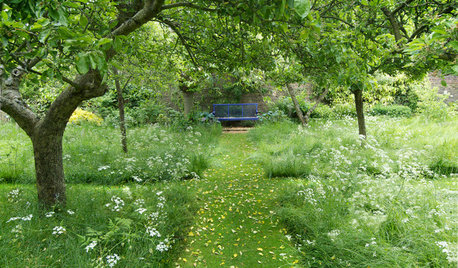
GROUND COVERSGive Your Lawn a Taste of the Wild
Consider the joys of an irregularly trimmed meadow lawn: It’s ecofriendly, visually interesting and still good for romping
Full Story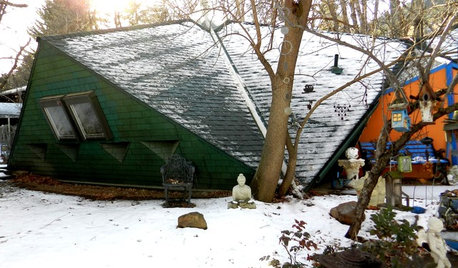
HOUZZ TOURSMy Houzz: Wild Triangular House in Boulder
Bold colors and eclectic vintage finds meet at every angle for a Colorado homeowner
Full Story
STONEGive In to Your Wild Side With Exotic Granite and Onyx
Go beyond the standard slab with these radiant and rare stones
Full Story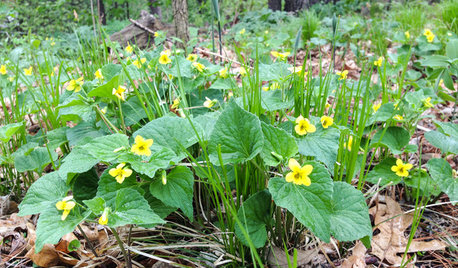
GARDENING GUIDESGreat Design Plant: Viola Pubescens Dots Woodlands With Yellow
Plant downy yellow violet in eastern U.S. woodland gardens for its heart-shaped leaves and bright yellow flowers
Full Story
DECORATING GUIDESRooms Spring to Life With Bold Floral Patterns
No shrinking violets here. These fearless patterns show that flowers can give power to everything from English cottages to modern lofts
Full Story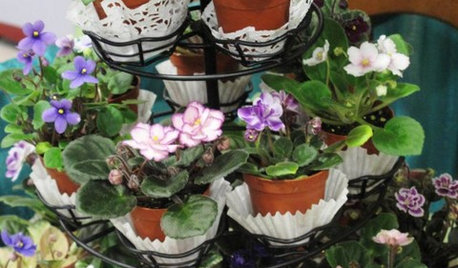
HOUSEPLANTSRetro Houseplants Get a New Look
The wild and crazy houseplants of the 1970s make a splash in today's interiors
Full Story
BEDROOMS8 Youthful Bedrooms That Show Grown-Ups How It's Done
Be a design wild child well past teendom with ideas for adult bedrooms that walk the line
Full Story
COLORWhat Goes With Purple Walls?
Make a plum wall come alive with art, warm metals, ivory, chartreuse, natural wood — and at least one wild card
Full Story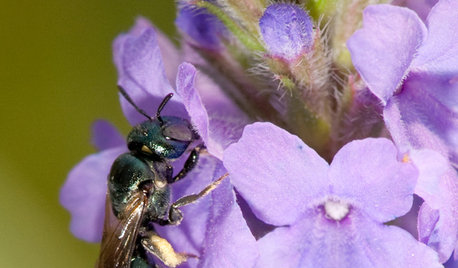
GARDENING GUIDESSmall Carpenter Bees Are Looking for a Home in Your Plant Stems
Provide flowers and nesting sites in your garden for this beautiful, tiny, metallic blue wild bee — your plants will thank you
Full Story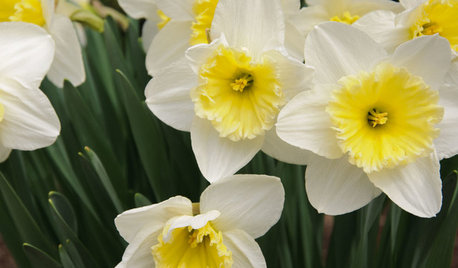
GARDENING GUIDESGreat Lakes Gardener's April Checklist
Watch your garden light up with bulbs, go wild for wildflowers and be kind to wildlife visitors
Full StoryMore Discussions







gardenfanatic2003Original Author